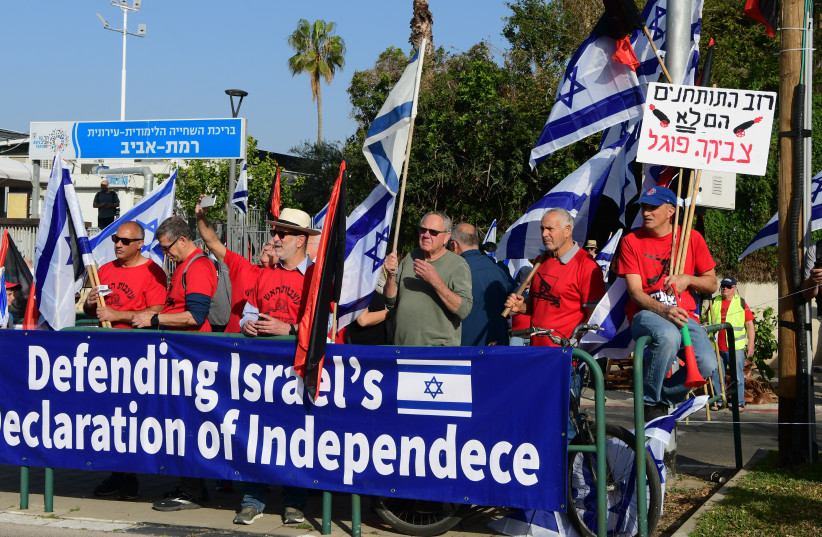Most Israelis think IDF reservists refusing to show up as an act of protest can influence government policies, such as on judicial reform, according to a new survey from the Israel Democracy Institute (IDI).
The poll also found that the Jewish Israeli public is divided on IDF reservists refusing to show up as an act of protest, and many a firm response by the military.
The study was released at an IDI conference, which saw discussion regarding the impact of the judicial reform protests on the ethos of the IDF as the "People's Army."
It found divided opinions on the action of reservists refusing to show up in protest, as well as the impact of the protests on soldiers in the middle of their mandatory IDF service.
What do Israelis think about IDF reservists refusing to show up?
Regarding reservists, over a quarter (29%) of Israeli Jews felt that IDF reservists should be allowed to refuse to show up for operational service and just under a quarter (24%) supported their refusal to show up for training. Around 11% felt that reservists should be allowed to say they won't show up when called up in an emergency scenario. However, most (59%) held that this is wrong.

The division is present on political lines, with over half of those aligned with Israel's Left supporting reservist's right to refuse to show up for operational service as well as routine training, while the center and Right were far less supportive.
However, support for refusing to show up for IDF reservist duty in an emergency scenario was lacking from all political sectors.
What do Israelis think about IDF soldiers in their mandatory service?
Israeli Jews appeared to be far less supportive of IDF soldiers refusing actions if they were conscripts during their mandatory service rather than reservists.
IDF troops in their mandatory service period should not be allowed to refuse to serve in the Palestinian territories in the West Bank, according to most (61%) Israeli Jews.
Just 24.5% of respondents thought this was acceptable, and this division was also present on political lines.
In addition, just 26% supported soldiers refusing to do anything that goes against their conscious, with a similar percentage saying that Israelis should be exempt from service for religious or pacifist reasons.
What do Israelis think the IDF's response should be?
So what would happen if an IDF reservist says they won't show up? The highest percentage (46%) of respondents said that his commanders should convince him to come. This view was supported by large percentages among the Left, Right and Center.
But what if the reservist actually doesn't show up? Then, 40% believe they should face criminal charges, while 20% say they should be dismissed and 23% said they should just be allowed to refuse.
Here, political lines differ. On the Right, most (51%) support criminal charges while on the Left, most (51%) support allowing them to refuse.
What do Israelis think about the IDF reservists' protest's effect on the government?
A majority (71%) of Israeli Jews think the protests by IDF reservists can influence the government's policies.
However, most (52%) also believe that if the IDF reservists' protest leads to the judicial reform being blunted or thrown out, there is a low or very low chance of a counter-protest from IDF reservists supporting the reform holding a similar protest.
